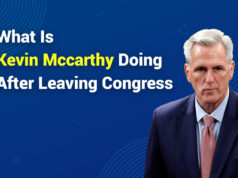Public relations is a crucial component of any election campaign, and it has become even more critical in today’s world of social media and digital communication. Candidates running for office must have a robust public relations strategy to reach voters effectively and build trust and credibility. With so much at stake in elections, public policy consulting firms specializing in public relations have become vital partners for campaigns seeking to win elections.
Public policy consulting firms provide candidates with various services, including messaging, media relations, crisis management, and social media management. By working with experienced professionals, candidates can develop a comprehensive public relations strategy that resonates with voters and helps them stand out from their competitors. With the right strategy in place, candidates can effectively communicate their values, beliefs, and policies and, ultimately, win over the hearts and minds of voters.
Craft A Compelling Message
The foundation of any successful public relations campaign is a compelling message. Your message should resonate with your target audience, be clear and concise, and communicate your values and beliefs. A well-crafted message will help you differentiate yourself from others. It will make a lasting impression on voters. Spend time researching your audience, and craft a message that speaks to their needs, desires, and values.
Build Relationships With The Media
In an election campaign, the media is your primary source of publicity. Building solid relationships with the media can help you get your message out to a broader audience. To build relationships with the media, you should first identify the critical media outlets in your area and the journalists who cover politics. Reach out to them, introduce yourself and your campaign, and offer them information and access to you or your team.
Be Transparent And Authentic
Transparency and authenticity are essential to building trust with voters. Be open and honest about your beliefs, values, and goals. Avoid spinning the truth or being disingenuous. It is best to be yourself. Let your personality shine through in your public appearances and communications. When making mistakes, admit it and take responsibility. Voters appreciate honesty and authenticity, which can help build their credibility.
Engage With Voters On Social Media
Social media is considered an essential channel for engaging voters in election campaigns. Use social media to share your message, connect with supporters, and respond to questions and concerns. Create engaging content that will resonate with your audience, including videos, infographics, and images. Respond to comments and messages promptly and politely, and avoid engaging in negative interactions with other candidates or voters.
Use Paid Advertising Strategically
Paid advertising can effectively reach a broader audience, but it’s essential to use it strategically. Identify the platforms your target audience will use and create targeted ads that speak to their needs and interests. Use retargeting to keep your message in front of voters who have already shown an interest in your campaign. Be mindful of your budget and track your results to ensure effective ads.
Develop A Crisis Communications Plan
In any election campaign, there’s always the potential for a crisis to arise. A crisis can take many forms, including a scandal, a misstatement, or a significant event. Developing a crisis communications plan in advance can help you respond quickly and effectively to any crisis. Your goal should include a designated spokesperson, key messages, and a communication method with the media and the public.
Track And Analyze Your Results
Finally, tracking and analyzing your results throughout the campaign is essential. Analytics tools are the way to track your social media engagement, website traffic, and email open rates. Monitor your media coverage and track your polling numbers. Use information for strategy refinement and tactics as you go and make adjustments as necessary.
Final Thoughts
A solid public relations strategy is essential for any election campaign. By crafting a compelling message, building relationships with the media, being transparent and authentic, engaging with voters on social media, using paid advertising strategically, developing a crisis communications plan, and tracking and analyzing your results, you can build trust and credibility with voters and achieve your campaign goals. Remember that public relations is an ongoing process. It’s essential to be flexible. It is also best to be adaptable as the campaign evolves.














